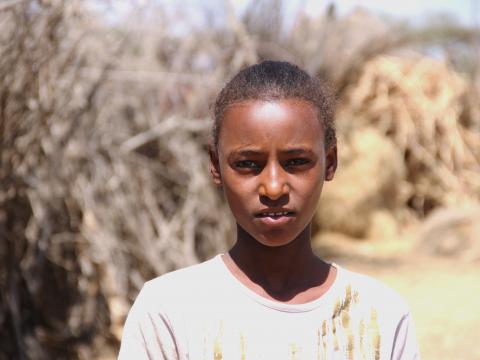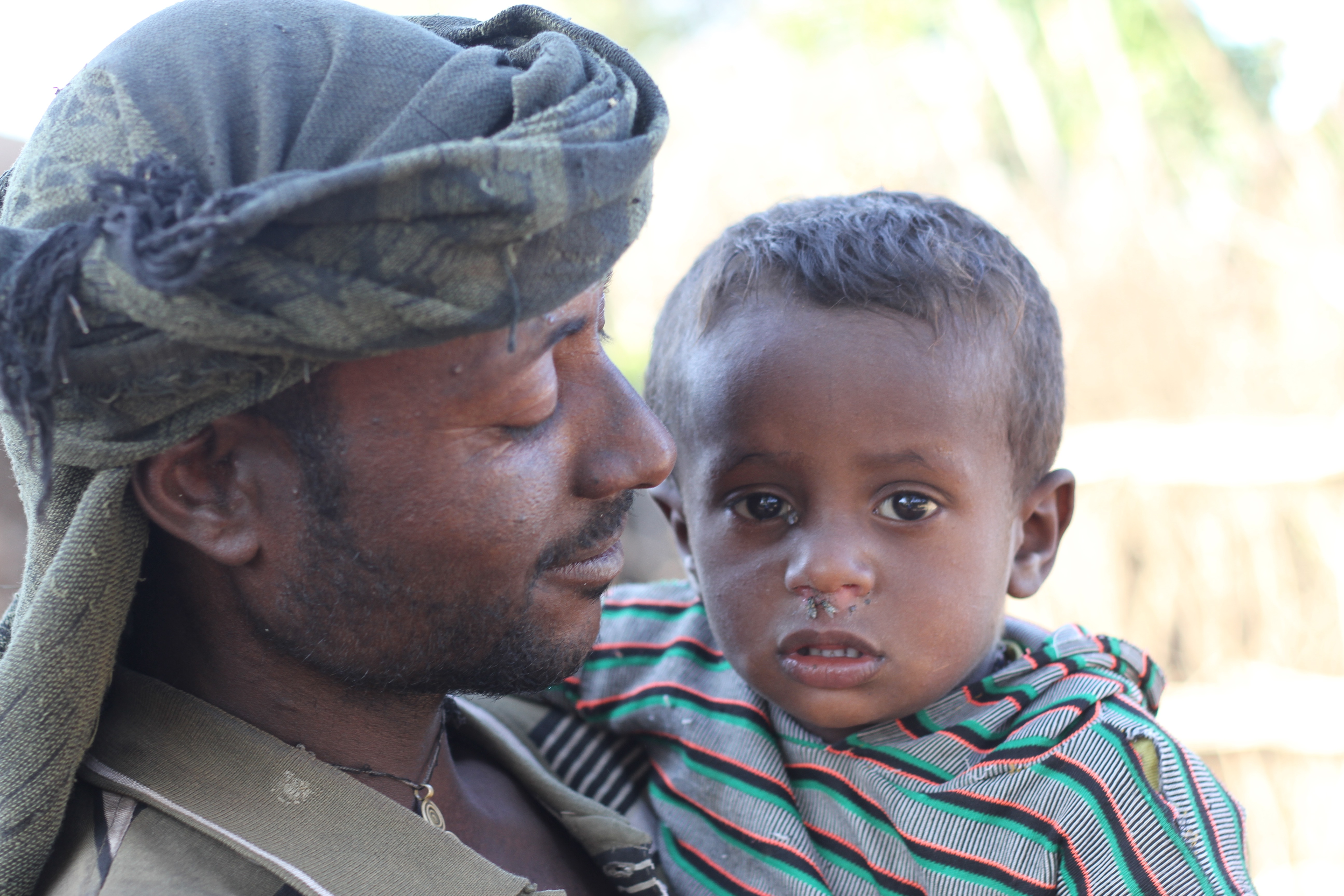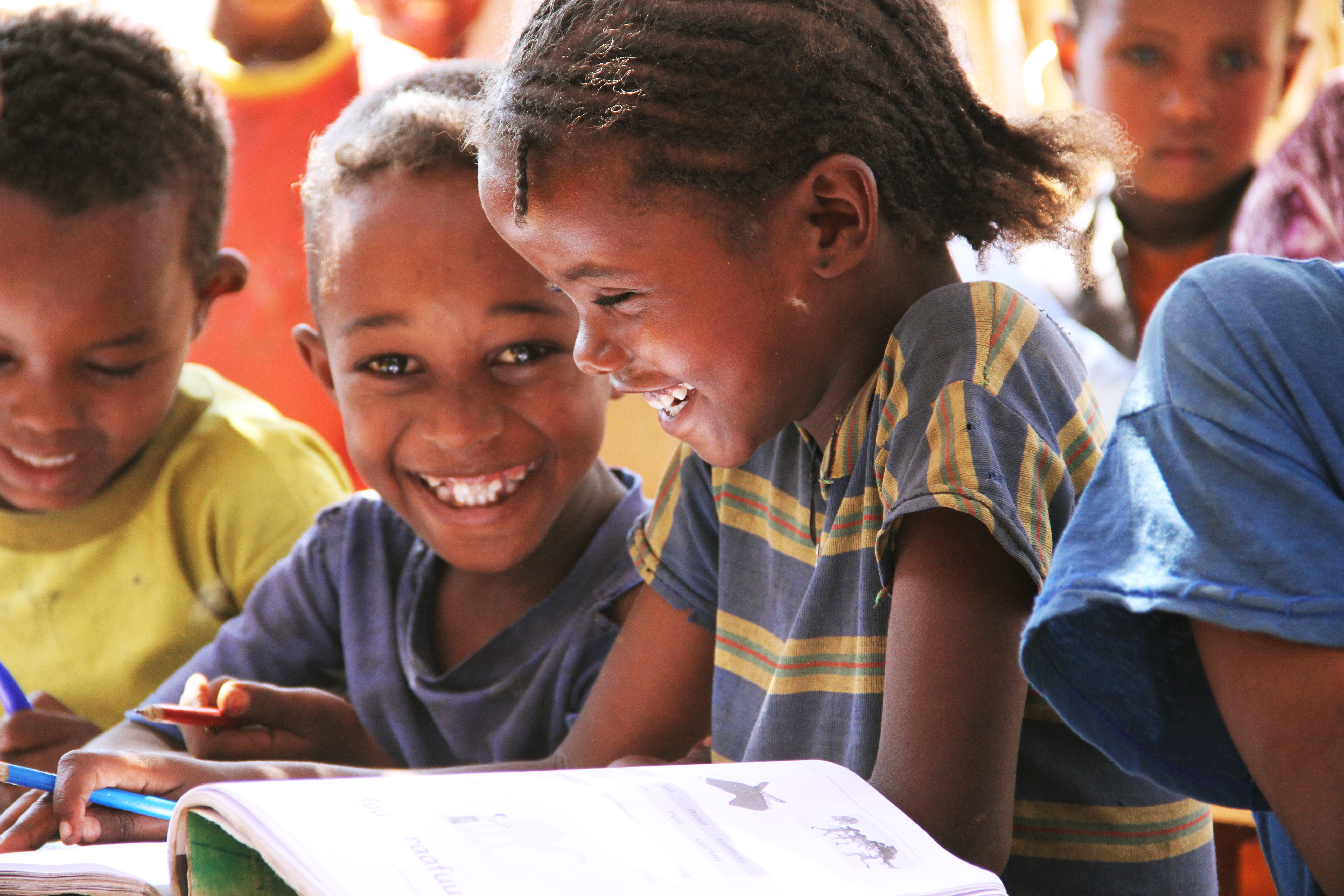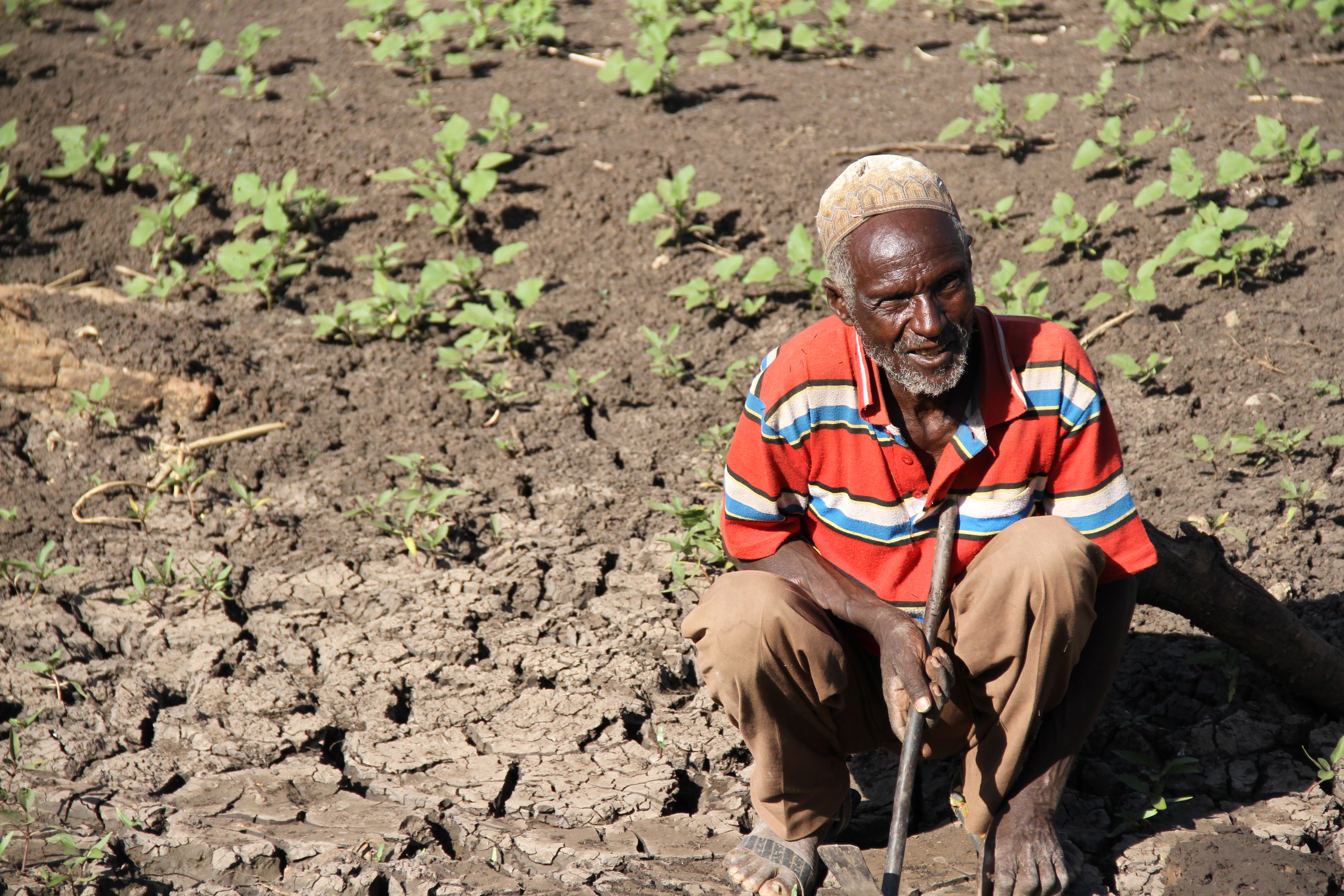School or water – The difficult choice of Ethiopian children

Driving through Boset in Ethiopia, the sight of donkeys, too many of them, carrying jerricans full of water, dot the landscape. The search for water is a full-time job, and one that isn’t always fruitful.
Failed rains mean that water points were not replenished and people have to travel long distances in search of water for drinking, household use and their animals. World Vision has trucked water over 100 kilometers to help save lives and reduce animal deaths.
Delelegn Gebre Hiwot, 35, is a father of three – Addisu (15) Bekalu (5) and Manaye (3). He lives in Jeju, one of the areas affected by the ongoing drought. “One of my sons was in school but now dropped out and migrated to work to support himself and us. All of my crops have been failed. We have no water and ponds we use have been dried up.”
Amano Gendo is 60, a father of nine, and tells a similar story. He has lived in Jeju for a long time and describes exactly how bad the drought is. “Normally this pond would serve us until February. But now it dried up well before it should. Our children travel long distances to fetch water, share with wild animals, many children are dropping school and others are contracting water borne diseases.”
Beshadu Bedhasso, (11) is in grade five and the only girl in her family. She has six siblings all of whom are in school. The water shortages mean that she has to miss school two days a week to fetch water for her family. This is despite the fact that school happens in two shifts, morning and afternoon.
“I fetch water from Awash River, 20 km from here. We walk for eight hours to fetch two jerry cans of water (each holding 10 litres). It is carried by our donkeys. We use it for drinking, domestic use and our livestock. The water lasts two days. We usually eat breakfast and dinner but no lunch.”
For any child, missing school is a hard choice to make but perhaps even more so for Beshadu who wants to be a teacher when she grows up.
At Beshadu’s school, Bekele Tebo, the school director explains how the drought is affecting all of his students.
“The main problem is water. Students don’t come to school. One day they come to school and the other day go to fetch water. They travel up to 20 km to fetch water. Consequently the number of children attending school varies daily. For example, in a family of two children: one goes to fetch water and the other to attend cattle. By the time they come back they are tired.”
Tebo is clearly frustrated at the unfair choice that children and their families must make.
“At the beginning of the year we registered 420 students and now 120 are not attending school mainly due to shortage of food and water. One of our students died as a result of a car accident while crossing the road to fetch water,” he says.
It is not just the students who are affected. Teachers are also members of the community and are struggling to meet the needs of their families during this crisis. “We are also affected by the situation. We buy one jerry can of water for 10 birr (0.5 USD) from town. We have eight teachers and one of them has left due to this problem,” says Tebo.
“Families can’t afford to buy for children what they want because of economic reason and children don’t attend school as required, as a result their academic performance is low,” says the school director.
Tebo is also affected and, in the face of hardship, finds it difficult to meet the needs of his family and run the school at the same time. “As a teacher and member of the community I am also affected. My family needs water. I am not in a position to meet the needs of my family because I have to keep the school running and cover for the teachers who might be away.”
World Vision has begun a water, sanitation and hygiene program in response to the needs of this community. A pond that will increase the water supply to the community is being constructed to reduce the reliance on water trucking. This will bring the water closer to homes, not only increasing their supply of clean water but getting children back in school.


